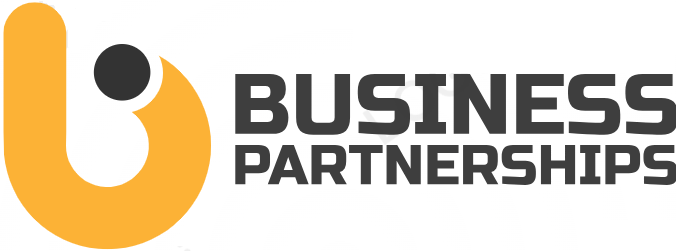The Future of Roofing: Business Partnerships and Emerging Trends in the Industry
The roofing industry is experiencing transformative changes driven by technological advancements, sustainability initiatives, and evolving customer preferences. As businesses navigate these shifts, strategic partnerships with roofing contractors are increasingly pivotal. This article explores the future of roofing, the role of business partnerships in shaping this future, emerging trends, challenges to overcome, and key considerations for stakeholders aiming to thrive in this evolving landscape.
Evolving Landscape of the Roofing Industry
The roofing sector plays a critical role in building construction, infrastructure development, and environmental sustainability. Key trends shaping the industry include:
- Technological Advancements: Innovations in roofing materials, manufacturing processes, and installation techniques are enhancing durability, energy efficiency, and performance. Smart roofing systems equipped with sensors and monitoring devices enable real-time diagnostics and predictive maintenance.
- Sustainability and Green Roofing: Increasing emphasis on sustainability has fueled demand for green roofing solutions, including cool roofs, vegetative roofs, and solar roofing technologies. These eco-friendly options reduce energy consumption, mitigate urban heat island effects, and support environmental conservation efforts.
- Digital Transformation: Digital tools such as drone technology, 3D modeling software, and augmented reality (AR) are revolutionizing roof inspections, project planning, and customer consultations. Virtual reality (VR) simulations facilitate design visualization and enhance client engagement in roofing projects.
- Resilience and Disaster Preparedness: Rising frequency of extreme weather events necessitates resilient roofing systems capable of withstanding hurricanes, wildfires, and severe storms. Partnerships are crucial in developing resilient roofing solutions and implementing disaster preparedness measures.
- Shift Towards Prefabrication and Modular Construction: Prefabricated roofing components and modular construction techniques streamline installation, minimize waste, and accelerate project timelines. Collaborative partnerships optimize supply chain logistics and enhance construction efficiency.
The Role of Business Partnerships in Shaping the Future of Roofing
Strategic partnerships between businesses and roofing contractors Toronto are catalysts for innovation, market expansion, and operational excellence:
- Collaborative Research and Development (R&D): Partnerships facilitate joint R&D initiatives to develop next-generation roofing materials, sustainable solutions, and advanced manufacturing processes. Shared expertise accelerates innovation cycles and enhances product differentiation.
- Integration of Technology and Roofing Services: Businesses leverage partnerships to integrate digital technologies, IoT-enabled devices, and data analytics into roofing services. Smart roofing solutions improve energy efficiency, optimize maintenance schedules, and enhance building performance metrics.
- Expansion into New Markets and Customer Segments: Collaborations with roofing contractors enable businesses to penetrate diverse market segments, including residential, commercial, industrial, and institutional sectors. Partnerships expand service offerings, strengthen market presence, and drive revenue growth.
- Enhanced Customer Experience: Joint efforts enhance customer satisfaction through personalized roofing solutions, transparent communication, and responsive customer support. Partnerships prioritize quality craftsmanship, adherence to timelines, and post-installation maintenance services.
- Sustainability and Environmental Stewardship: Businesses and roofing contractors collaborate on sustainable roofing projects, including LEED-certified buildings, green roofs, and energy-efficient renovations. Partnerships promote sustainable practices, reduce carbon footprints, and support green building certifications.
Challenges and Considerations in Roofing Partnerships
While partnerships offer strategic advantages, stakeholders must navigate challenges to maximize collaboration impact:
- Regulatory Compliance: Navigate building codes, zoning regulations, safety standards, and environmental regulations governing roofing projects. Partnerships ensure compliance with local, regional, and national regulatory frameworks.
- Risk Management and Liability: Mitigate risks associated with workplace safety, construction defects, warranty claims, and project delays. Clear contractual agreements, insurance coverage, and adherence to industry best practices minimize liabilities.
- Skill Shortages and Workforce Development: Address skilled labor shortages by investing in workforce training, professional certifications, and apprenticeship programs. Partnerships support talent development, improve workforce productivity, and uphold industry standards.
- Technological Integration Challenges: Overcome interoperability issues, data security concerns, and IT infrastructure compatibility when integrating digital technologies into roofing operations. Collaborative partnerships optimize technology deployment and enhance operational efficiency.
Future Outlook and Opportunities for Stakeholders
Looking ahead, the future of roofing partnerships is promising as stakeholders embrace collaborative strategies to drive innovation and sustainability:
- Advancements in Roofing Materials and Technology: Partnerships will drive advancements in lightweight materials, thermal insulation, fire-resistant coatings, and self-healing roofing membranes. Emerging technologies such as nanotechnology and biodegradable materials will revolutionize roofing design and performance.
- Expansion of Smart Roofing Solutions: IoT-enabled sensors, predictive analytics, and remote monitoring capabilities will expand smart roofing applications. Partnerships will enhance building automation, optimize energy consumption, and provide real-time data insights for proactive maintenance.
- Focus on Circular Economy and Waste Reduction: Partnerships will prioritize circular economy principles, including roof recycling programs, material reuse, and cradle-to-cradle product lifecycle management. Sustainable roofing practices will minimize waste generation and promote resource conservation.
- Resilient Roofing Systems for Climate Adaptation: Collaboration will drive the development of resilient roofing systems capable of withstanding climate change impacts, extreme weather events, and natural disasters. Partnerships will integrate disaster preparedness measures and enhance community resilience.
Business partnerships are integral to shaping the future of the roofing industry, fostering innovation, and addressing global challenges such as sustainability and resilience. By leveraging collaborative efforts, stakeholders can accelerate technological advancements, expand market opportunities, and deliver superior roofing solutions that meet evolving customer needs. Successful partnerships require strategic alignment, regulatory compliance, and a commitment to quality craftsmanship and customer satisfaction. As businesses and roofing contractors forge ahead, embracing innovation and sustainable practices will drive positive impact and ensure a resilient future for the roofing industry.

Leave a Reply